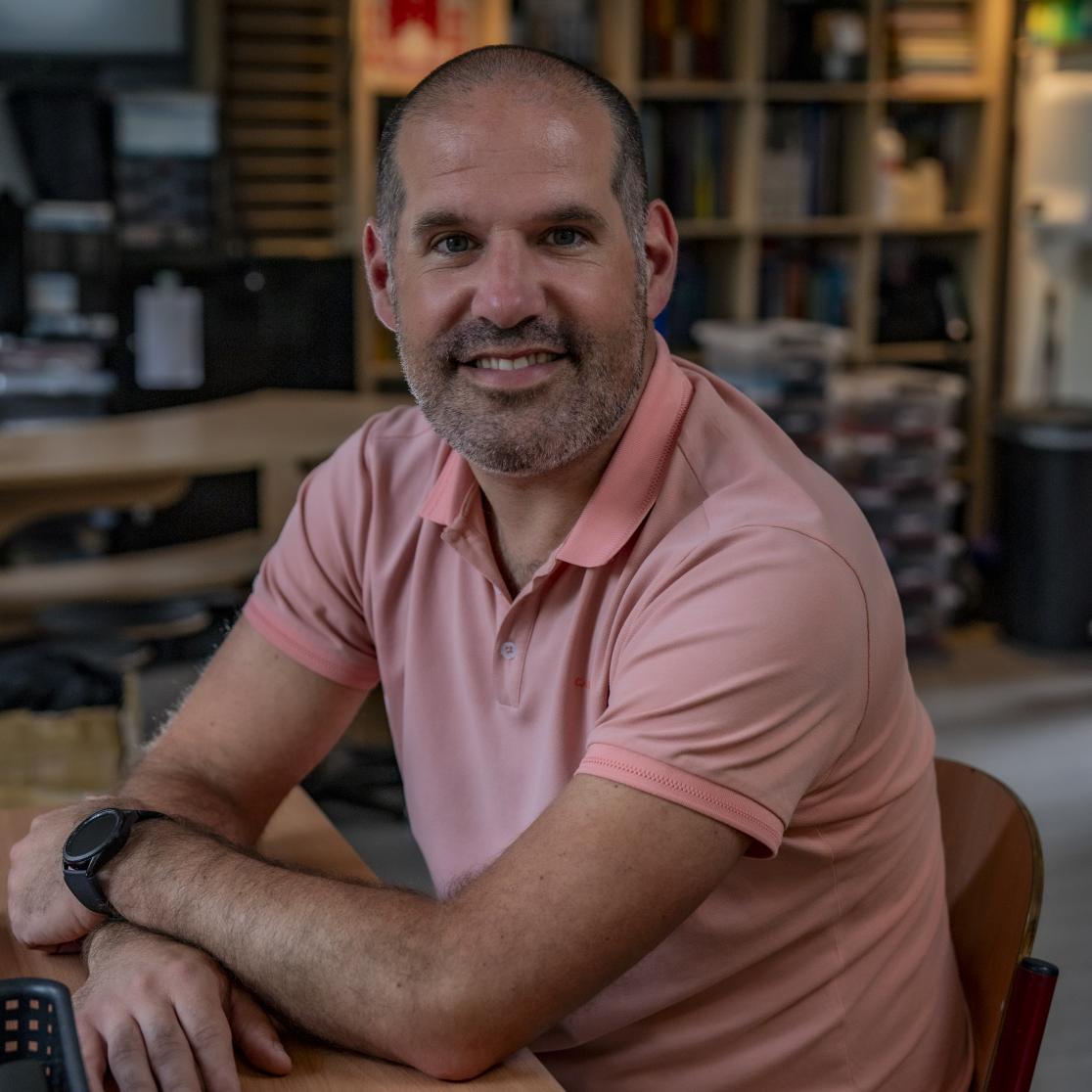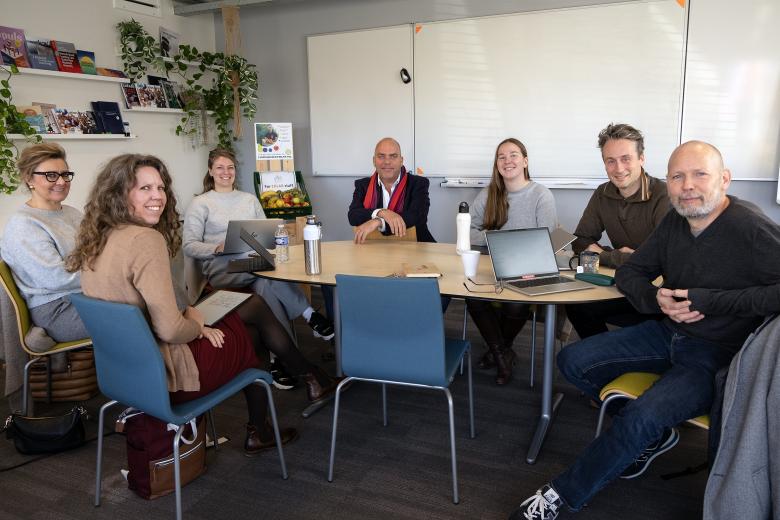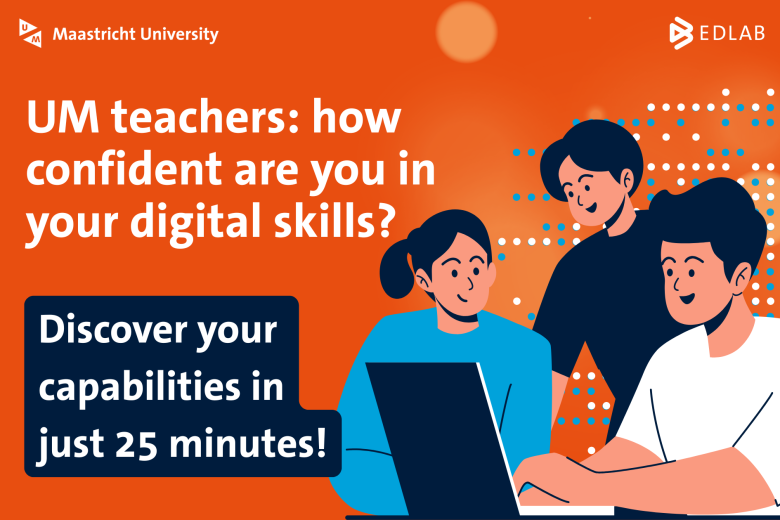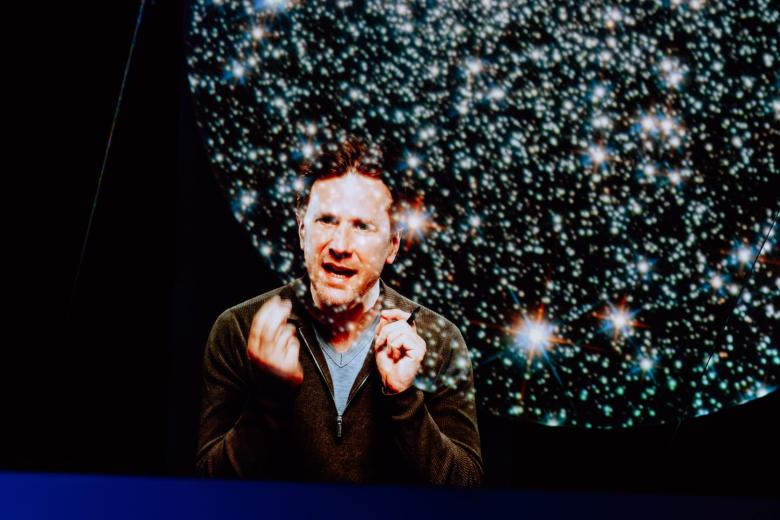KidzCollege: 15 years of linking primary schools with the university
It’s happened every May and June for the last 15 years. Groups of 60 pupils—Year 7 students from primary schools around the region—filing into UM lecture halls to get acquainted with academia. What happens if you break the law? How are new medicines developed? The lectures are pitched in an accessible way, from the doctor’s coats to real-life ambulances. Here, creator Ingrid Wijk and lecturer Martijn Poeze discuss the KidzCollege initiative.
The idea arose 18 years ago. “My daughter is to blame,” Ingrid Wijk jokes. Her daughter was in Year 7 at the time. Every week, her teacher would take the class to visit a parent’s workplace. “My office work wasn’t going to be all that interesting to 11- and 12-year-olds. I figured it’d be more fun to show them a real lecture.”
Marketing professor Ko de Ruyter taught her daughter’s class how the concept of influence works using a cola test with different brands. “The students and teachers were so enthusiastic that the school asked if we could run something like that more often,” Wijk recalls. “Other primary schools in Maastricht were interested, too.”
Introduction to Science
And thus KidzCollege was born, in which Year 7 students are introduced to academic themes in a low-threshold, engaging way. Teachers can register their class for a free 80-minute lecture. “We deliberately chose not to have individual pupils sign up,” Wijk explains. “There’s already so much gatekeeping that goes on after primary school. The value lies in the fact that all pupils can participate, no matter what type of high school they end up going to.” One comment has long stuck with her. “A 12-year-old once came up to me afterwards and said, ‘I’ll probably never go to university, but I’m glad I experienced this.”
Less talking, more doing
The lectures cover a wide range of themes. This year’s topics include ‘Know what you eat!’, ‘The obstacle course to a new medicine’ and ‘What happens if you break the law?’ The most popular lectures are recycled annually. The Brokkenboel lecture, for example, has been a fixed part of the programme since the outset, when it was first offered by Peter Brink. Trauma surgeon Martijn Poeze now delivers this lecture.
Speaking to a young audience is no more challenging than usual, Poeze says. “As with regular lectures, it’s important to make it interactive and ask questions. Asking ‘Who’s ever had a broken bone?’ is enough to get a lively discussion going. I speak for 15 minutes at most. Then we get to work.”
Going home in a cast
The highlight of the Brokkenboel lecture is that students get to wear doctor’s coats and play the role of medical specialists themselves. “I tell them about a primary school student who’s been in a car accident,” Poeze explains enthusiastically. “Together, we go through the steps that follow. It involves a whole medical team. First, an ambulance arrives, which is a spectacle in itself. One student volunteers to play the patient; the others serve as the anaesthetist, trauma surgeon and nurses. Then they get to ‘operate’ on a fake bone, including plates and screws to repair it. They even put the ‘patient’ in a real plaster cast. I joke with them, ‘Tell your parents you had to be rushed to hospital!”
Beyond the ivory tower
Between 2010 and 2023, more than 93 primary schools and 8,700 children from the Maastricht region took part. This year, KidzCollege celebrates its 15th anniversary, and there are ample plans for the future. One initiative is a pilot project in collaboration with STEAM, a network organisation in science and technology for Limburg primary schools and companies.
What has stayed constant throughout: KidzCollege’s goal of introducing school students to academia. “Universities are sometimes accused of being ivory towers,” Wijk says. “KidzCollege allows us to give society a peek into what we’re doing. We have a lot of knowledge here that should also be visible outside the university walls.”
Text: Romy Veul
Photography: Harry Heuts and the regional intensive care network (NAZL)

Spotlight on: teacher Ivo Leenders
Ivo Leenders has been teaching Year 7 at the Sint Aloysius primary school in Maastricht for 12 years. A colleague introduced him to the KidzCollege programme. “We’ve been taking our classes to the lectures from the very beginning. The students always find it fascinating—even the lecture hall is impressive for them. We always walk there together, which is easy from our school in the city centre.
“It’s interesting for the students to see themes being addressed that we cover in subjects like reading comprehension and world orientation, but in more depth. ‘Know what you eat!’, for example, complements our biology lessons on the Food Wheel, and the lecture on breaking the law resonates with the topics we cover in news comprehension. I’m already looking forward to signing up again this year; I hope we can go to Brokkenboel again. The students often talk about it for days or weeks afterwards.”
Also read
-
Teacher Information Points at UM
UM faculties now host Teacher Information Points (TIPs) that offer local, “just-in-time” and on-demand support for teaching staff. The aim is simple: to provide help that is closely connected to day-to-day teaching practice.

-
As a teacher, how confident are you in your digital skills? Discover your capabilities in just 25 minutes
Maastricht University invites all teaching staff to take part in the Jisc Discovery Tool pilot to explore your digital strengths.

-
In Kerkrade, you can listen to the invisible universe
UM and Discovery Museum in Kerkrade make the Einstein Telescope understandable for everyone.
